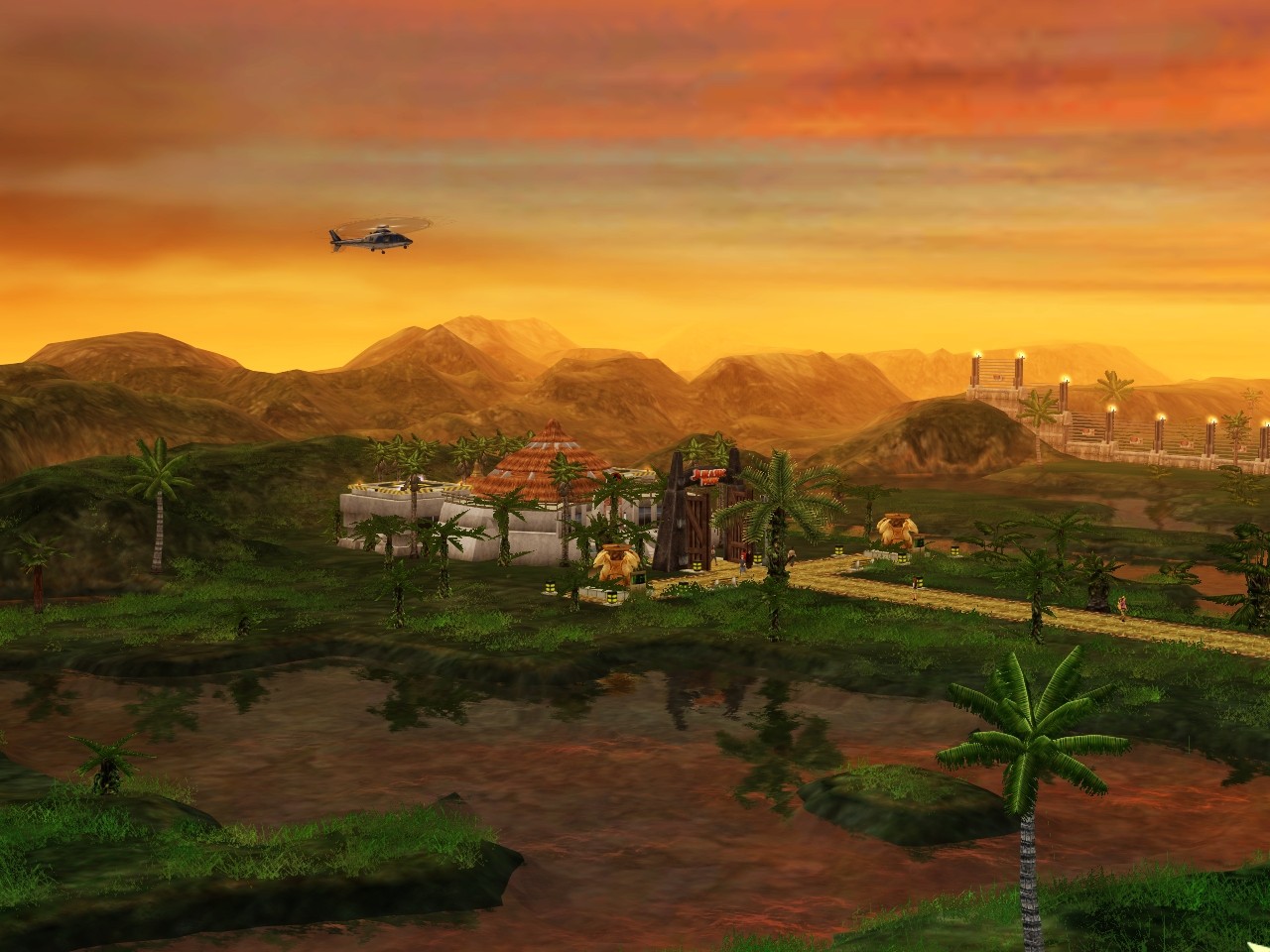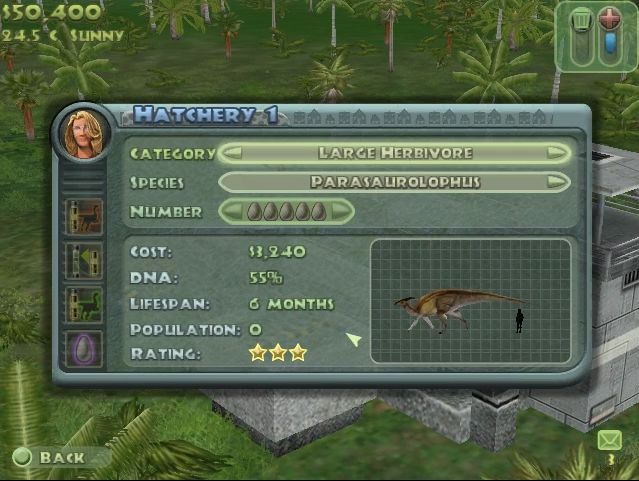
You can set how much you want to charge for entrance to the park, to use observation areas to see the dinos, for souvenirs, burgers and dogs and even the bathroom if you feel so inclined.

To be successful, you have to charge and spend in the right balance. The cash management aspect of the game is rich enough and in inline with what's expected from "tycoon" type games. Every single one of those components costs money and bigger and better dinos -which you can charge more to see- cost bigger dollars. In a multi-tiered system and for every dinosaur you hope to have in your park you have to first excavate archaeological digs for fossils, research the genetic material until you have enough to hatch one of those suckers and then put the new dino in a habitat that will make it happy and healthy. The combination of playing god and having the skill of a strategist do come together very nicely in Jurassic Park, at least early on. In the case of Jurassic Park, you're not picking the rides or designing roller coasters, but creating every element of your dinosaur exhibits including the species of dino, their habitat and how people are going to experience them.

Games like Roller Coaster Tycoon proved to be popular among older gamers because of the micromanaging functions that allowed you to set the menu and prices of the park's fast food outlets, manage a custodial staff and handle security all for the purpose of running a profitable and popular amusement park business.

There are missions and exercises separate from Operation Genesis that first teach you and the apply skills that you will need in that main theme park building mode.įor those unfamiliar with the genre, the idea is to use an overhead/god's perspective to build a theme park from scratch, choosing the buildings, where they're going to be placed and how much to charge. Operation Genesis is the main game mode of JP where you get to build your own version of Jurassic Park amusement park and make it successful.


 0 kommentar(er)
0 kommentar(er)
